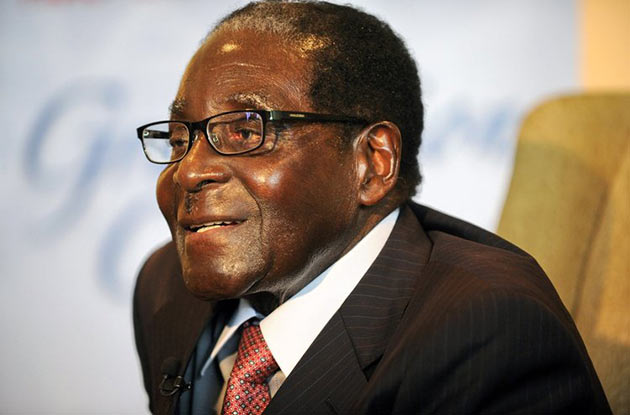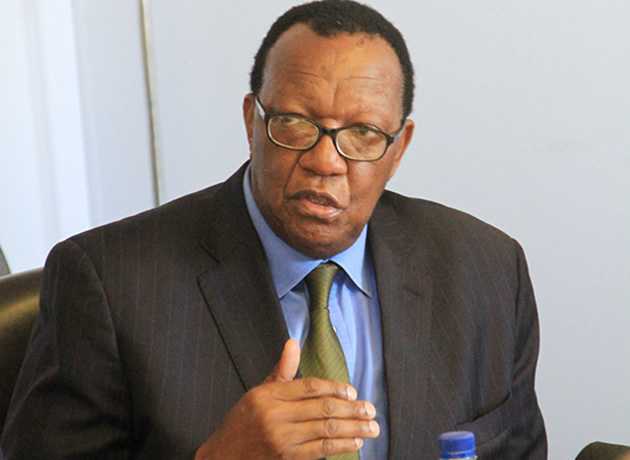The Constitution is Zim’s supreme law

Christopher Farai Charamba Correspondent—
On May 22, 2013, President Mugabe signed into law the Constitution of the Republic of Zimbabwe following a constitution-making process that took place during the inclusive Government.
Article 2 of the Constitution reads, “This Constitution is the supreme law of Zimbabwe and any law, practice, custom or conduct inconsistent with it is invalid to the extent of the inconsistency.”
The same Article which deals with the supremacy of the Constitution, goes on to state that “the obligations imposed by this Constitution are binding on every person, natural or juristic, including the State and all executive, legislative and judicial institutions and agencies of government at every level, and must be fulfilled by them.”
One of the provisions under the Constitution, which is binding on every person including all executive and agencies of Government at every level, is found in Chapter 13, Institutions to Combat Corruption and Crime.
Under this chapter falls the Zimbabwe Anti-Corruption Commission (ZACC) and its specific key functions, that should aid it in its work to combat corruption.
Some of these key functions are as follows;
(1)(a) to investigate and expose cases of corruption in the public and private sector; (b) to combat corruption, theft, misappropriation, abuse of power and other improper conduct in the public and private sector;
(e) to direct the Commissioner-General of Police to investigate cases of suspected corruption and report to the Commission on the results of such investigation; (f) to refer matters to the National Prosecuting Authority for prosecution.
The Constitution goes on to state, “the Commissioner-General of the Police must comply with any directive given to him or her by the Zimbabwe Anti-Corruption Commission under subsection (1)(e).
It adds that, “the Government must ensure through legislative and other means that the Zimbabwe Anti-Corruption Commission has power to recommend the arrest and secure the prosecution of persons reasonably suspected of corruption, abuse of power and improper conduct which falls within the Commission’s jurisdiction.”
A few weeks ago I wrote that as corruption has become endemic in Zimbabwe, the ball was now in the Zimbabwe Anti-Corruption Commission’s court to carry out their constitutional mandate and investigate the numerous allegations of corruption that had been unearthed in the Press as well as other institutions such as the office of the Auditor-General.
Last week ZACC took steps to do just that.
In an alleged case of corruption involving Higher and Tertiary Education, Science and Technology Development Minister Professor Jonathan Moyo and his deputy Dr Godfrey Gandawa, accused of siphoning $270 000 from the Zimbabwe Manpower Development Fund (Zimdef), the ZACC along with members of the Zimbabwe Republic Police, ambushed Prof Moyo at a Zanu-PF Politburo meeting.
Acting President Phelekezela Mphoko has come out and criticised the ZACC for their actions, calling them “malicious” and stating that ZACC has no authority to arrest a Cabinet Minister without first seeking approval from the President.
“There is this topical issue involving the (Zimbabwe) Anti-Corruption Commission, which wanted to arrest Minister Jonathan Moyo. The law of this country says the commission (ZACC) has no mandate or power to arrest a Cabinet Minister appointed by the President and even police or whoever is required to get clearance from the President to do so. The President is the only person who can sanction such an arrest as the appointing authority,” Acting President Mphoko said.
One is unsure which law VP Mphoko is quoting but no such provision exists in the Constitution, the supreme law of Zimbabwe. ZACC may not have arresting powers but they have the authority as mandated by the Constitution to direct the police to investigate cases of suspected corruption.
The Constitution further states that the Commissioner-General of Police must comply with any directive given to him or her by the Zimbabwe Anti-Corruption Commission under subsection (1)(e).
Nowhere in the Constitution does it state that permission must first be sought from the President for the ZACC to make an arrest of a Cabinet Minister. Neither does the Constitution state that a Cabinet Minister is immune from arrest.
In fact, the Constitution states that the “Government must ensure through legislative and other means that the Zimbabwe Anti-Corruption Commission has power to recommend the arrest and secure the prosecution of persons reasonably suspected of corruption, abuse of power and improper conduct which falls within the Commission’s jurisdiction.”
As the Constitution is the supreme law of Zimbabwe and any law, practice, custom or conduct inconsistent with it is invalid to the extent of the inconsistency, whatever law it was referred to by VP Mphoko in his chastisement of ZACC is in fact invalid.
Acting President Mphoko also said that; “Members of Parliament have immunity and they cannot be arrested in Parliament, but those boys were given an order to arrest Prof Moyo.” This is true but only in part. While Article 148 (1) of the Constitution does grant immunity from civil or criminal proceedings, arrest or imprisonment or damages to the President of the Senate, the Speaker and Members of Parliament, it extends only “for anything said in, produced before or submitted to Parliament or any of its committees.”
Professor Moyo’s alleged corruption is independent of Parliament or his role as a parliamentarian neither did ZACC seek to arrest him at or in Parliament.
ZACC should be allowed to carry out its constitutional mandate as it is the institution with the authority to root out corruption in Zimbabwe. The Government has time and time again spoken out against corruption and it should put a bite to its bark by ensuring legal action takes place against those reasonably suspected of corruption.
Professor Moyo in his defence on social media has liked himself to Robin Hood and justified his alleged actions as empowerment for the people of Tsholotsho. Unfortunately, on issues of corruption, the end cannot justify the means.
If reasonable accusations are brought forward, then they should be investigated and if found to be true then the individual or individuals responsible for the abuse of funds should face the full wrath of the law.
Besides it being wrong, it would certainly set a bad precedent to make excuses for corruption, more so at a time when misappropriation of funds, bad corporate governance and other corrupt practices are taking place at other state institutions and parastatals.
How many would use such an excuse as a defence particularly during the trying economic times Zimbabwe finds itself under? Professor Moyo has also tried to defend himself by pointing fingers at others. Of Zimdef, he tweeted, “you’re saying this c*** because you don’t know they paid medical bills for ministers & even bought cement before & given (sic) loans to OPC staff.”
If that is the case and Professor Moyo is aware of corrupt practices taking place at or through Zimdef, then he should report these to the relevant authorities. Surely that would be the right thing to do especially as a member of a Government which has committed itself to fighting corruption.
ZACC clearly has its work cut out for it and should get the support of the Government in rooting out the cancer of corruption in Zimbabwe. The law is the law, the Constitution remains the supreme law of Zimbabwe and should be followed as such. If Prof Moyo or any other individual accused of corruption believes they are wrongfully accused, then they should allow the law to take its course and challenge their accuser through the legal instruments provided.








Comments